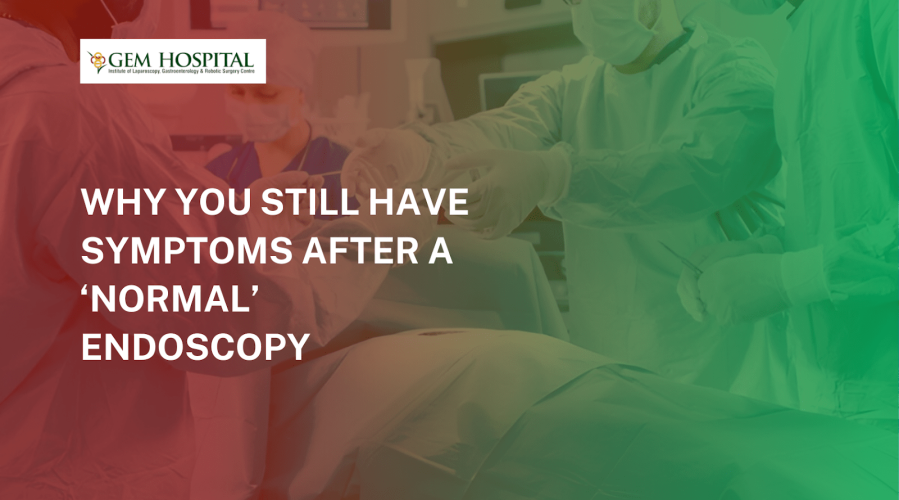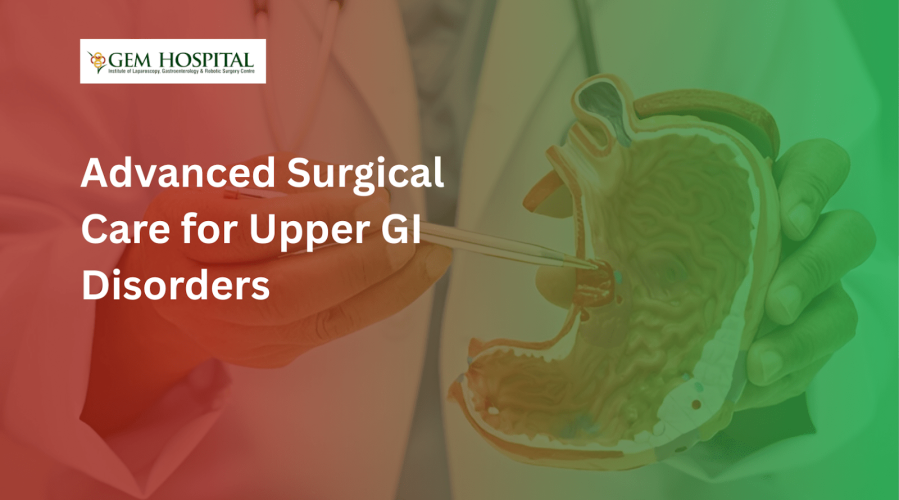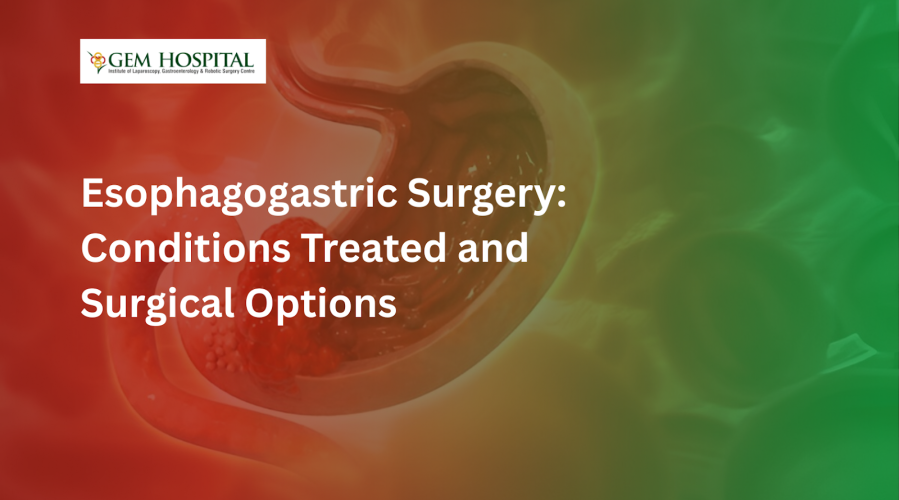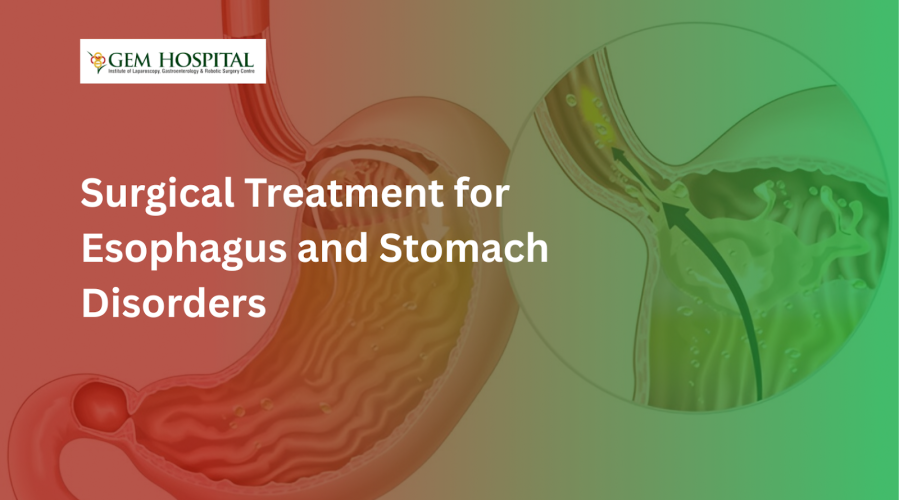Advanced surgical care for upper GI disorders including esophagus, stomach, and duodenal conditions. Learn about diagnosis, minimally invasive treatments, and expert surgical solutions.
Why You Still Have Symptoms After a ‘Normal’ Endoscopy

Having an endoscopy done can feel like a big step toward getting relief from your unexplained digestive symptoms. But what happens when you get your endoscopy results back as "normal" and yet the symptoms, discomfort, pain, or bloating does not go away?
You’re not alone. Many patients have ongoing symptoms after a normal endoscopy and understanding why is the first step toward achieving real relief.
What Does a “Normal” Endoscopy Mean?
A normal endoscopy means that the doctor did not find any visible ulcers, tumors, bleeding or inflammation in your esophagus, stomach or the duodenum of your small intestine. Generally, this is a good sign, but it doesn’t mean that everything is alright. There are many conditions that can’t be seen through the traditional course of an endoscopy.
Common Reasons You May Still Have Symptoms
1. Functional GI Disorders
One of the most common reasons for ongoing symptoms is a functional gastrointestinal disorder like:
- Irritable Bowel Syndrome (IBS)
- Functional Dyspepsia
- Functional Heartburn
These are real medical conditions but they often show no abnormalities in imaging or endoscopy.
2. Microscopic Inflammation
Some types of inflammation, such as eosinophilic esophagitis or microscopic colitis, can be found only through a biopsy and not simply by looking at the inside with a scope.
3. Non-acid Reflux
Normal endoscopy could miss bile reflux or non-acid reflux which can still cause chest pain, burning, or cough even if the cause of that was not acid.
4. Gastrointestinal Motility Disorders
If the muscles of digestion are not working correctly (this could be gastroparesis or other motility issues), you may experience symptoms such as bloating, nausea, or fullness, regardless of your stomach lining appearing normal (i.e., no visible issues in the stomach lining).
5. Psychological Triggers
Stress and anxiety can needless to say play a major role in how your gut is functioning. This is often referred to as the gut-brain connection, which can go a long way towards explaining a variety of symptoms a patient may experience, often presenting without any physical abnormalities.
What Should You Do Next?
If you're still dealing with discomfort, don’t give up. A normal endoscopy doesn’t mean you're imagining things, it just means further evaluation is needed.
Some helpful next steps may include:
- pH monitoring to check for acid or non-acid reflux
- Esophageal manometry to assess motility
- Food intolerance testing
- Gut microbiome analysis
- Follow-up with a gastroenterologist who specializes in functional disorders
Don’t Ignore Persistent Symptoms
Having symptoms after normal endoscopy is more common than you think. You may need additional testing or expert guidance to uncover the root cause of your condition.
Here’s a quick checklist to consider:
- Were biopsies taken during the procedure?
- Have you been evaluated for functional GI disorders?
- Was motility testing suggested?
- Are lifestyle or psychological factors contributing?
Still struggling with unexplained symptoms?
The experts at GEM Hospital are specialists at evaluating and diagnosing complicated and complex digestive issues that do not show up in typical lab tests.
Don't wait. Call and book an appointment today. Take the next step toward real answers and relief.
Blogs & Article
Learn about esophagogastric surgery, the conditions it treats, and the latest surgical options available for disorders of the esophagus and stomach, including minimally invasive procedures.
Learn about surgical treatment options for esophagus and stomach disorders, including advanced procedures, benefits, and when surgery is recommended for better digestive health.


